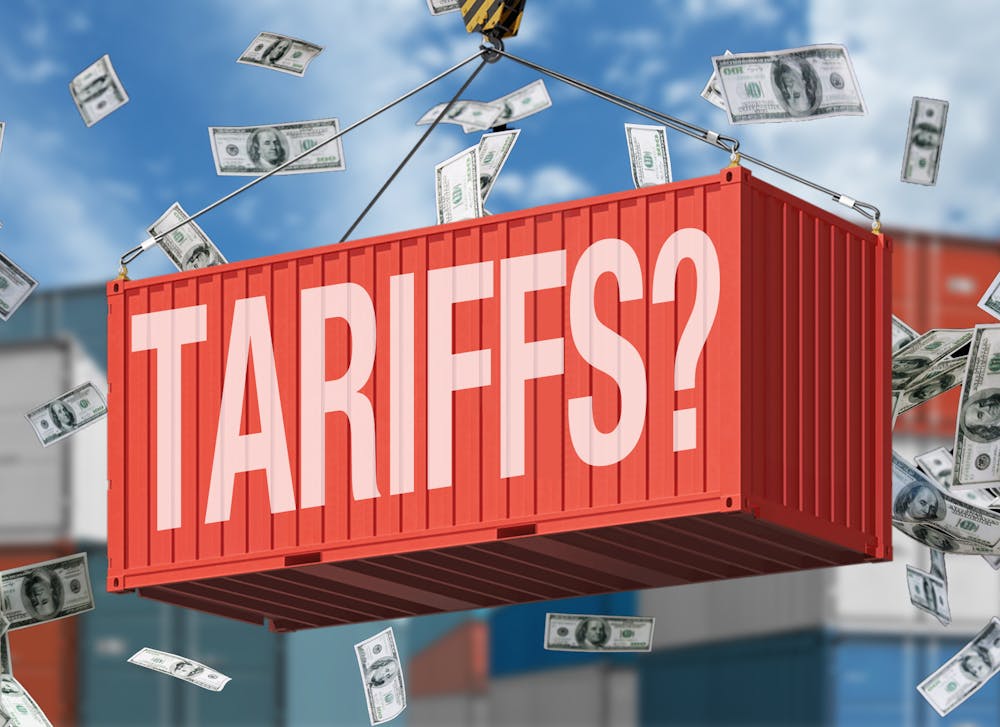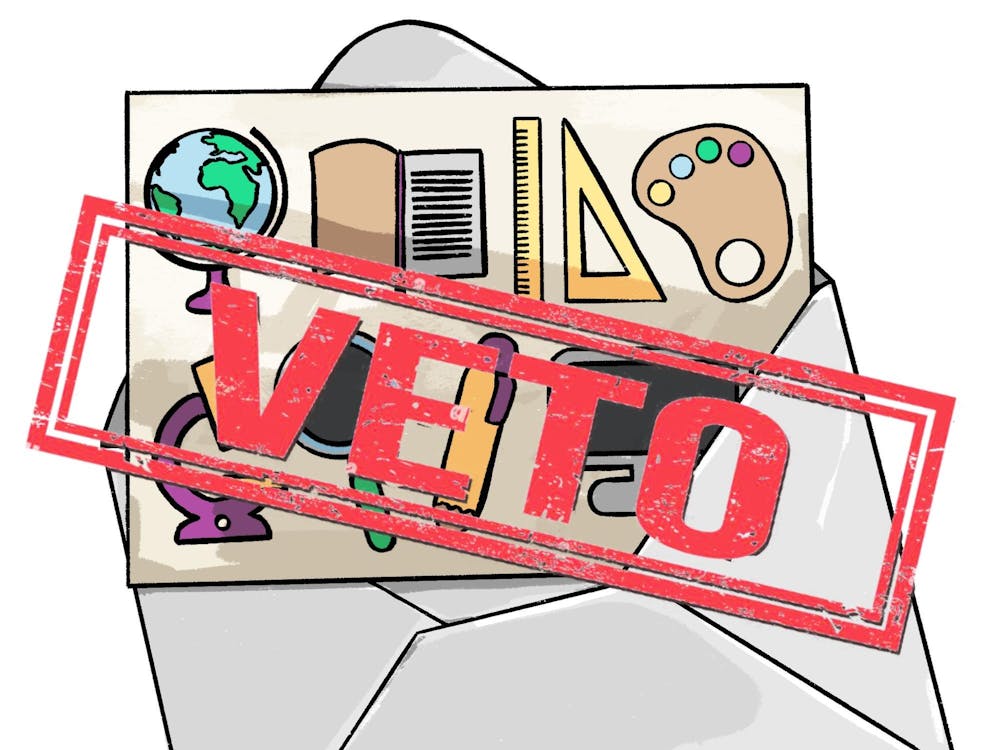One of the most meaningless trade wars in our nation’s history is on the horizon.
Tariffs are strong and muscly. When fully unleashed, they’ll leave the United States economy on the floor grabbing its stomach – and college students grabbing their wallets in agony.
Simply hearing the word tariffs is enough to make anyone cringe … especially economists. Take a seat. I’m not here to bore you with tedious economic theory or bury you in jargon. Let’s use our common sense.
Imagine you own a successful local clothing shop (and for the sake of a poor joke a couple of lines down, it’s named “Baa Baa Black Sheep”) in a small town. How might you expect tariffs to impact your business? Badly.
At first glance you might assume these tariffs will act as a protective measure against your foreign-based competitors – but let me ask you: have you any wool?
Contrary to popular belief, the U.S. imports more goods than it exports, which means domestic businesses rely on foreign goods. So, where do you get your wool and other supplies from? Do you have sheep that you shear in the parking lot right next to the dumpsters?
Probably not.
These tariffs don’t just hit foreign businesses – they hit our own. We rely on imports to produce goods in America.
And these tariffs aren’t symbolic by any means. They’ll hit our wallets hard. The largest hikes will be applied to our top three trading partners, which account for 40% of all U.S. imports.
We’re not just talking about avocados from Mexico – we’re talking about a more than significant amount of steel, automobiles and vehicle parts, electronics, crude oil, natural gas, textiles, clothing and furniture from Mexico, Canada and China.
Small businesses will pay more out of pocket to continue providing the same quality of goods to consumers. This could lead to cutbacks in employment, lower wages or simply more expensive products. Most small businesses depend on foreign imports because no country as large as the U.S. operates in an economic vacuum. Free trade isn’t optional – it’s necessary.
One of the most basic economic principles states that a tax on imports is a tax on exports. Both are interdependent. We will all be footing this costly bill.
Enjoy what you're reading?
Signup for our newsletter
The truth is that college students live on tight budgets and are one of the most price-sensitive demographics in the world. Now you may be thinking, “Don’t be dramatic, it’s only a couple bucks,” but it’s not.
The tariffs are the coffees we grab in between lectures, the denim jeans in our online cart, the kitchen appliances for our off-campus apartments and the homes we hope to start a family in. These aren’t abstract consequences – they are very real and will be felt by everyone.
Usually, tariffs are promoted as a way to protect domestic industries. However, history has shown time and again that they do not work as intended. Rather than protecting American enterprise, they create disastrous ripple effects that reverberate worldwide and cause damage to the most disadvantaged.
What’s more, retaliatory tariffs are now being applied to the U.S. from our closest trading partners. Any guesses as to how that will go? We all lose out … again.
Tell me, when you walk into a store, do you see “Made in America,” scream, “Yuck!” and then buy the item labeled “Made in China?” Of course you don’t.
Most people shop with their wallets and products assembled or produced domestically tend to cost more money. Rather than uplifting, providing more subsidies and offering diverse incentives to small businesses, this administration has decided to financially burden you and that mom n’ pop shop down the road just trying to make ends meet.
Some parting advice: raise some chickens in your dorm now, so you can have some scrambled eggs later.
Gabriel Slark is a freshman majoring in economics from Westerville, Ohio. He is a research assistant for Professor Katherine Kuvalanka and a writer for the opinion section of The Miami Student.




